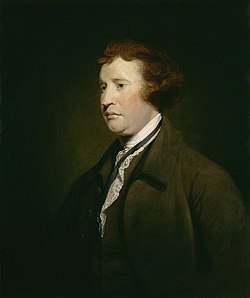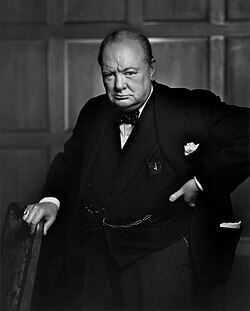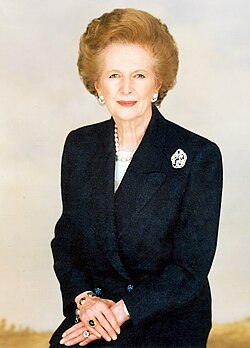| Name | Lifetime | Notability | Ref. |
|---|
| James Hogg | 1770–1835 | Author of The Private Memoirs and Confessions of a Justified Sinner and Jacobite Relics | [134] |
| William Wordsworth | 1770–1850 | Author of Lyrical Ballads and The Prelude | [135] [136] |
| Walter Scott | 1771–1832 | Author of Ivanhoe and Waverley | [137] |
| Samuel Taylor Coleridge | 1772–1834 | Author of The Rime of the Ancient Mariner and Kublai Khan | [138] |
| Robert Southey | 1743–1843 | Author of "After Blenheim" and "Goldilocks and the Three Bears" | [139] |
| John Clare | 1793–1864 | Author of Poems Descriptive of Rural Life and Scenery | [140] |
| Edward Bulwer-Lytton | 1803–1864 | Author of Pelham, Vril: The Power of the Coming Race , and The Last Days of Pompeii | [141] |
| Charlotte Brontë | 1816–1855 | Author of Jane Eyre and Villette | [142] |
| Coventry Patmore | 1823–1896 | Author of The Angel in the House | [143] |
| Lewis Carroll | 1832–1898 | Author of Alice's Adventures in Wonderland and Through the Looking-Glass | [144] |
| Alfred Austin | 1835–1913 | Author of A Poem – To England | [145] |
| Gerard Manley Hopkins | 1844–1889 | Author of "The Windhover" and The Wreck of the Deutschland | [143] |
| William Hurrell Mallock | 1849–1923 | Author of The New Republic | [146] |
| Mary Augusta Ward | 1851–1920 | Author of Robert Elsmere , Marcella, and The Marriage of William Ashe | |
| Robert Louis Stevenson | 1850–1894 | Author of Treasure Island , A Child's Garden of Verses , Kidnapped and Strange Case of Dr Jekyll and Mr Hyde | [147] |
| H. Rider Haggard | 1856–1825 | Author of King Solomon's Mines and She: A History of Adventure | [148] |
| George Gissing | 1857–1903 | Author of The Nether World , New Grub Street and The Odd Women | [149] |
| Joseph Conrad | 1857–1924 | Author of Heart of Darkness and Nostromo | [150] |
| Arthur Conan Doyle | 1859–1930 | Creator of Canon of Sherlock Holmes and The Lost World | [151] |
| W. W. Jacobs | 1863–1943 | Author of The Lady of the Barge including The Monkey's Paw | [152] |
| Arthur Machen | 1863–1947 | Author of The Great God Pan | |
| Rudyard Kipling | 1865–1936 | Nobel Laureate author of The Jungle Book duology, Kim and Just So Stories | [153] |
| Saki | 1870–1916 | Author of The Westminster Alice and When William Came | [154] [155] |
| Lord Alfred Douglas | 1870–1945 | Author of The City of the Soul and The Duke of Berwick | [156] |
| Robert Hugh Benson | 1871–1914 | Author of Lord of the World and Come Rack! Come Rope! | [157] |
| Ford Madox Ford | 1873–1939 | Author of The Good Soldier and the Parade's End tetralogy | [158] |
| G. K. Chesterton | 1874–1934 | Author of The Napoleon of Notting Hill , The Everlasting Man and the Father Brown stories | [159] [160] |
| John Buchan | 1875-1940 | Author of The Thirty-Nine Steps | [161] |
| John Hay Beith | 1876–1952 | Author of Pip , A Safety Match and The Midshipmaid under the pen name Ian Hay | [162] |
| Lord Dunsany | 1878–1957 | Author of The King of Elfland's Daughter and The Gods of Pegāna | [163] |
| Radclyffe Hall | 1880–1943 | Author of The Well of Loneliness | [164] |
| T. E. Hulme | 1883–1917 | Author of "Autumn" and "A City Sunset", both published in 1909 in a Poets' Club anthology, have the distinction of being the first Imagist poems. | [165] |
| Gerald Gardner | 1884–1964 | Author of A Goddess Arrives and High Magic's Aid | [166] |
| D. H. Lawrence | 1885–1930 | Author of The White Peacock , Sons and Lovers , The Rainbow and Lady Chatterley's Lover | [167] |
| T. S. Eliot | 1888–1965 | Author of The Love Song of J. Alfred Prufrock , The Waste Land , The Hollow Men and Four Quartets | [133] |
| Dion Fortune | 1890–1946 | Author of The Winged Bull and The Sea Priestess | [168] |
| Agatha Christie | 1890–1976 | Author of Murder on the Orient Express , The Murder of Roger Ackroyd , Death on the Nile and The Murder at the Vicarage | [169] |
| Vita Sackville-West | 1892–1962 | Author of The Land, The Edwardians , and All Passion Spent | [170] |
| J. R. R. Tolkien | 1892–1973 | Author of The Lord of the Rings and The Hobbit | [171] |
| Dennis Wheatley | 1897–1977 | Author of The Forbidden Territory and The Devil Rides Out | [172] |
| Elizabeth Bowen | 1899–1973 | Author of The Last September , The House in Paris , The Death of the Heart , The Heat of the Day and Eva Trout | [173] [174] |
| Barbara Cartland | 1901–2000 | Author of A Ghost in Monte Carlo | [175] |
| Lady Eleanor Smith | 1902–1945 | Author of the Red Wagon and Caravan | [176] |
| Evelyn Waugh | 1903–1966 | Author of the Decline and Fall , A Handful of Dust , Brideshead Revisited , and the Sword of Honour trilogy | [177] |
| Ian Fleming | 1908–1964 | Author of the James Bond series | [178] |
| Henry Green | 1905–1973 | Author of Living, Party Going , and Loving | [179] |
| Anthony Powell | 1905-2000 | Author of the 12-volume roman-fleuve A Dance to the Music of Time | [180] |
| John Betjeman | 1906-1984 | Poet Laureate and author of Continual Dew | [181] |
| Lawrence Durrell | 1912–1990 | Author of The Alexandria Quartet | [182] |
| Roald Dahl | 1916-1990 | Author of Charlie and the Chocolate Factory and Fantastic Mr Fox | [183] [184] |
| Anthony Burgess | 1917–1993 | Author of The Malayan Trilogy and A Clockwork Orange | [185] |
| P. D. James | 1920–2014 | Author of the Adam Dalgliesh mysteries, An Unsuitable Job for a Woman and The Children of Men | [186] |
| John Braine | 1922–1986 | Author of Room at the Top | [187] |
| Kingsley Amis | 1922–1995 | Author of Lucky Jim , Jake's Thing and The Old Devils | [188] [189] |
| Philip Larkin | 1922–1985 | Author of The Whitsun Weddings and High Windows | [190] [191] |
| James Moffat | 1922–1993 | Author of Skinhead | |
| George MacDonald Fraser | 1925–2008 | Author of The Flashman Papers | [192] |
| Simon Raven | 1927-2001 | Author of the Alms for Oblivion series | |
| John Osborne | 1929-1994 | Author of Look Back in Anger | [193] |
| J. G. Ballard | 1930–2009 | Author of The Atrocity Exhibition , Crash and High-Rise | [194] [195] [196] |
| Geoffrey Hill | 1932–2016 | Author of For the Unfallen | [197] |
| V. S. Naipaul | 1932–2018 | Nobel Laureate author of the A House for Mr Biswas , In a Free State , A Bend in the River and The Enigma of Arrival | [198] |
| Jilly Cooper | 1937–2025 | Author of the Rutshire Chronicles including Riders , Rivals and The Man Who Made Husbands Jealous | [199] |
| Frederick Forsyth | 1938–2025 | Author of The Day of the Jackal , The Dogs of War and The Fist of God | [200] |
| Allan Massie | 1938–2026 | Author of Augustus and Tiberius | |
| Ferdinand Mount | 1939 – | Author of A Chronicle of Modern Twilight | [201] |
| Michael Dobbs | 1948 – | Author of House of Cards | |
| Paul Kingsnorth | 1972 – | Author of The Wake | [202] |






